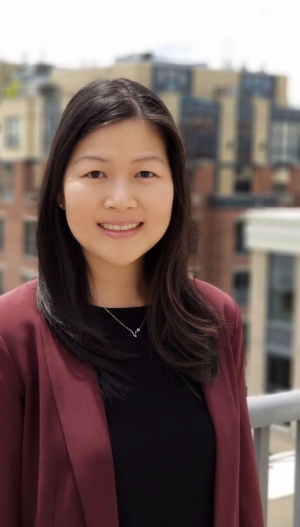Filling COVID-Induced Void, PSYC Team Creates Videos to Support Youths with ADHD
Two University of Maryland Department of Psychology (PSYC) professors and a handful of graduate students recently developed 11 animated videos designed to teach children with ADHD how to effectively cope with some of the symptoms of the neurological condition; from better managing their time and emotions, to tackling disruptive thoughts.
The videos were borne out of a new partnership between Children and Adults with Attention-Deficit/Hyperactivity Disorder (CHADD), the leading national nonprofit organization supporting the ADHD community, and the Stroud Foundation, a tax-exempt public charity dedicated to improving the lives of children with learning differences and their families in the D.C. area. Both entities recognized the need for children with ADHD to continue receiving support while isolating at home during the height of the COVID-19 pandemic, and therefore put out a joint call for research proposals that would result in positive interventions.
Professor Andrea Chronis-Tuscano answered.

“When I saw the request for proposals I thought this was an excellent opportunity to make a difference in the lives of teens and young adults with ADHD who were struggling academically and emotionally during the COVID-19 pandemic,” said Chronis-Tuscano. “Given the virtual learning environment—which required additional executive functioning demands, and for students to be self-motivated, focused, planful in breaking down tasks, and persistent in steadily working with little to no adult supervision, not to mention actively planning social activities that used to part of their daily routines—we wanted to provide a free, accessible, evidence-based and scalable resource for teens with ADHD and the adults that support them worldwide.”
Animated videos and printable handouts, now housed on the CHADD website, seemed the easiest way to do that. For Assistant Research Professor Joyce Lui, it was also the most rewarding, given her passion for making complex academic topics easier to understand.
“I've always been interested in the intersection of technology and mental health and thinking about more digestible ways of disseminating science to the public,” Lui, who took the lead on creating the videos using software from Vyond, said.

Nicholas Marsh, a UMD PSYC graduate student, coordinated the project, while Dr. Melissa Dvorsky, Director of the ADHD & Learning Differences Program at Children’s National Hospital, Anna Garner, former coordinator of the UMD SUCCEEDS ADHD program, and Lauren Oddo, another UMD PSYC graduate student, weighed in on the video and handout content.
Each video is approximately two minutes long, told from the first-person perspective, and features a different main character to ensure that there is equal representation in age, ethnicity and gender across content. Dr. Nicole Lorenzo, a former UMD PSYC post-doctoral fellow who now works at American University, and consultant Dr. Felix Lorenzo, a public health specialist, translated each video and accompanying handouts into Spanish. Yale University School of Medicine student Kevin Hu and Qianyu Zhu, a doctoral student in UMD’s School Psychology program, translated all videos and handouts into Mandarin.
“My sons, Ravi (age 14) and Gabe (age 11) served as kind of a mini focus group to provide feedback on aspects of the videos that would be more or less appealing to their age group,” Chronis-Tuscano added.
Still, creating videos and handouts wasn’t all that Chronis-Tuscano and her team were funded $12,570 to do. The PSYC team was also tasked with tracking how many people utilize the videos on the CHADD site using Google analytics, and figuring out how effective the videos are at helping parents and children with ADHD by way of surveys that viewers are asked to take immediately after watching the videos, and then again one month later.
Survey results and analyses are expected later this summer.
“I would love to see this be an additional resource for families,” said Lui. “We know there is a shortage of mental health providers and so much need, and so I think having an additional avenue for children, adolescents, and their parents, teachers and therapists to be able to access evidence-based skills is really important.”
To access the videos and handouts developed by this UMD PSYC team, visit chadd.org/stroud-umdadhdtools.
Published on Thu, Jun 16, 2022 - 10:04AM



